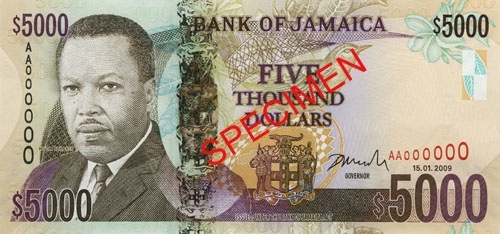THE national minimum wage will be increased from $5,000 to $5,600 per 40-hour work week, as of Monday, January 6, 2014.
Also, effective January 6, the minimum wage for industrial security guards, will be increased from $7,320.40 to $8,198.80 per 40-hour work week.
Labour and Social Security Minister Derrick Kellier made the announcement on Tuesday in a statement to the House of Representatives.
He said the adjustments constitute a 12 per cent increase in respect of both the national minimum wage and the minimum wage for industrial security guards from the previous rates established in 2012.
The National Minimum Wage (Amendment) Order and the Minimum Wage (Industrial Security Guards) (Amendment) Order were approved to effect the changes.
Providing a breakdown of the new rates for industrial security guards, the minister announced that their laundry allowance will be increased from $33.30 to $37.30 per hour; firearm allowance will be raised to $41 per hour, up from $36.60; and dog handler’s allowance will be increased from $24.63 to $27.58 per hour.
The cost of insurance coverage to employers payable on account of security guards who are killed or injured in the line of duty remains at $2 million.
Kellier noted that by convention, the national minimum wage has been the subject of review annually, with the Minimum Wage Advisory Commission.
“This decision was taken because this administration recognises that the current economic climate has negatively impacted the spending power of these workers,” Kellier said.
In September, consultations were held in the parishes of St. James, Portland, Manchester and Kingston and St Andrew. The Advisory Commission concluded its series of islandwide consultations on September 26.
The consultations gathered recommendations and concerns from representatives of a wide array of sectors central to the discussions on the national minimum wage.
These included private sector entities, and groups such as the Jamaica Confederation of Trade Unions, the Sugar Producers Federation of Jamaica, the Jamaica Employers’ Federation, the Household Workers Association, as well as governmental agencies, such as the Planning Institute of Jamaica, the HEART Trust/NTA, and the Bureau of Women’s Affairs.








 KELLIER… Government recognises that the current economic climate has negatively impacted the spending power of these workers
KELLIER… Government recognises that the current economic climate has negatively impacted the spending power of these workers



